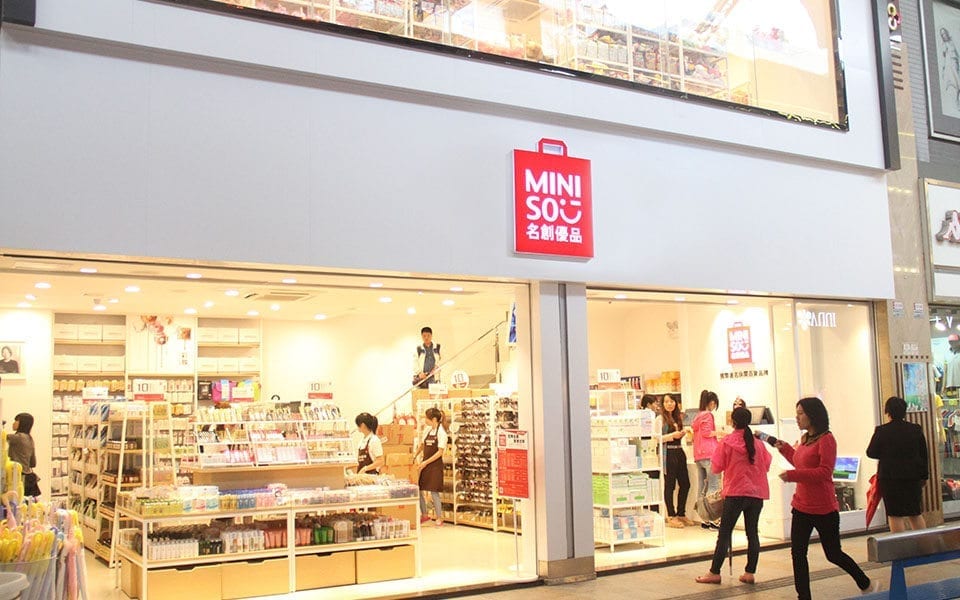

Chinese budget retailer Miniso Group Holding Ltd. apologized for styling itself as a Japanese designer brand and said it would change its logo, amid a wave of local nationalism fueled by geopolitical tension over Taiwan.
The Guangzhou-based company has long promoted itself as Japanese-influenced, with a Japanese chief designer and Japanese characters on its shopping bags and marketing language. This, it said in a statement on Miniso’s official Weibo account Thursday, was “wrong.”
“We used wrong brand positioning and marketing campaigns during the early days,” the statement said. “We feel regret and guilt.”
The seller of cheap household goods has been “removing” Japanese elements since 2019, including re-designing its logo and shopping bags to change Japanese characters to Mandarin ones in its more than 3,000 local outlets, said the statement. It will also more closely police overseas units.
The pivot comes after Miniso became a target of nationalistic social media users due to an Instagram post by its Spanish unit in July that described a cheongsam-clad toy as a Japanese geisha. It apologized then as well, but pressure has grown as the China-Japan relationship deteriorated after U.S. House Speaker Nancy Pelosi’s controversial visit to Taiwan earlier this month.
China called off a face-to-face meeting between Foreign Minister Wang Yi and his Japanese counterpart over a Group of Seven statement expressing concern about Beijing’s “threatening actions” around Taiwan during and after Pelosi’s visit.
The Miniso pivot is another example of how consumer nationalism in China has become a minefield for brands to navigate, with companies ranging from Mercedez-Benz Group AG to Hennes & Mauritz AB. being boycotted for perceived slights in recent years. It also reflects how “foreign” elements have now become a liability in China, a sea change from several years ago when Miniso capitalized on the popularity of actual Japanese chains like Muji to lure local shoppers.
Anti-Japanese sentiment is growing across the country. Local media reported that a young woman was detained and interrogated by police last week after wearing a kimono for a photo shoot in the eastern city of Suzhou.
Officials in Tokyo have become increasingly outspoken about the importance of Taiwan’s national security to Japan’s own stability, a development that has sparked anger in China, which considers Taiwan part of its territory.